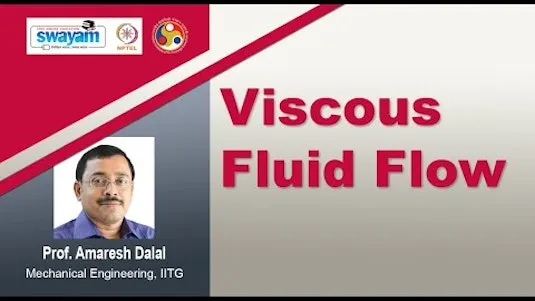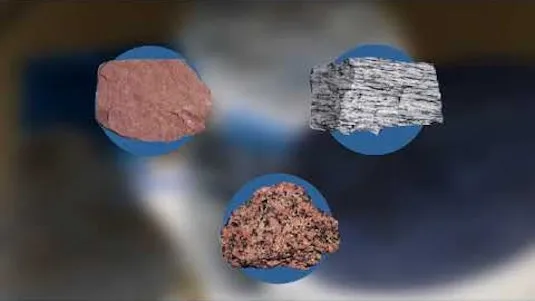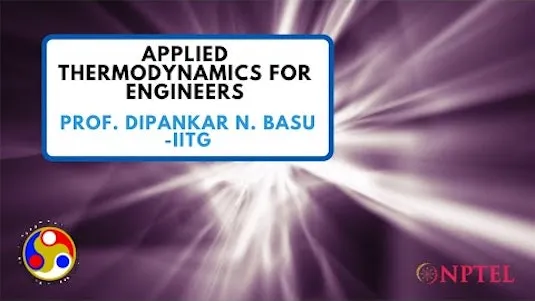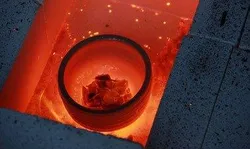
Viscous Fluid Flow 
This course provides an advanced understanding of viscous fluid flow, covering topics such as Navier-Stokes equations, exact solutions, boundary layers, and hydrodynamic stability. It is intended for postgraduate and undergraduate students of Mechanical Engineering, faculty members, and practicing engineers associated with fluid and thermal industries. No specific pre-requisites are required, although a fundamental knowledge of Fluid Mechanics is recommended. ▼
ADVERTISEMENT
Course Feature
![]() Cost:
Cost:
Free
![]() Provider:
Provider:
Swayam
![]() Certificate:
Certificate:
Paid Certification
![]() Language:
Language:
English
![]() Start Date:
Start Date:
22nd Jan, 2023
Course Overview
❗The content presented here is sourced directly from Swayam platform. For comprehensive course details, including enrollment information, simply click on the 'Go to class' link on our website.
Updated in [March 20th, 2023]
Viscous fluid flow covers the fundamentals of fluid mechanics from an advanced point of view. This course focusses largely on viscous flows in the incompressible regime. This course will cover the derivation of Navier-Stokes equations, exact solutions for simplified configurations, creeping flows , Stokes's first and second problems, laminar boundary layers, wall-bounded and free-shear boundaries and hydrodynamic stability with an introduction to turbulence. The course will give the audience physical insights through the use of mathematical tools for solving real-flow problems. The course will help students, faculty members, and researchers in the field to get in-depth understanding of concepts in viscous fluid flow.INTENDED AUDIENCE :Postgraduate and undergraduate students of Mechanical Engineering and similar branches; Faculty members associated with Mechanical Engineering; Practicing engineers associated with fluid and thermal industries.PREREQUISITES : No specific pre-requisite. Fundamental knowledge of Fluid Mechanics should be sufficient.INDUSTRIES SUPPORT :BHEL, NTPC, Eaton
(Please note that we obtained the following content based on information that users may want to know, such as skills, applicable scenarios, future development, etc., combined with AI tools, and have been manually reviewed)
1. You can gain a comprehensive understanding of the fundamentals of fluid mechanics from an advanced point of view. This course will cover the derivation of Navier-Stokes equations, exact solutions for simplified configurations, creeping flows, Stokes's first and second problems, laminar boundary layers, wall-bounded and free-shear boundaries and hydrodynamic stability with an introduction to turbulence.
2. You can gain physical insights through the use of mathematical tools for solving real-flow problems. This course will help you to understand the concepts of viscous fluid flow in a more comprehensive way.
3. You can gain knowledge of the applications of viscous fluid flow in various industries. This course will help you to understand the practical applications of viscous fluid flow in industries such as BHEL, NTPC, and Eaton.
4. You can gain the ability to solve real-world problems related to viscous fluid flow. This course will help you to develop the skills to solve real-world problems related to viscous fluid flow.
5. You can gain the ability to apply the knowledge of viscous fluid flow in various fields. This course will help you to understand the applications of viscous fluid flow in various fields such as mechanical engineering, thermal engineering, and other related fields.
[Applications]
Those who have taken this course can apply their knowledge to a variety of industries, such as BHEL, NTPC, and Eaton. They can use their understanding of viscous fluid flow to solve real-flow problems and gain physical insights. They can also use their knowledge to develop new technologies and products related to fluid and thermal industries. Additionally, they can use their knowledge to teach and mentor students in the field of Mechanical Engineering.
[Career Paths]
1. Fluid Dynamics Engineer: Fluid dynamics engineers are responsible for designing, developing, and testing fluid systems and components. They use their knowledge of fluid mechanics to analyze and solve problems related to fluid flow, pressure, and temperature. They also develop and implement strategies to improve the efficiency of fluid systems. As the demand for energy efficiency increases, the need for fluid dynamics engineers is expected to grow.
2. Turbomachinery Engineer: Turbomachinery engineers are responsible for designing, developing, and testing turbomachinery components such as turbines, compressors, and pumps. They use their knowledge of fluid mechanics and thermodynamics to analyze and solve problems related to turbomachinery performance. As the demand for renewable energy sources increases, the need for turbomachinery engineers is expected to grow.
3. Heat Transfer Engineer: Heat transfer engineers are responsible for designing, developing, and testing heat transfer systems and components. They use their knowledge of fluid mechanics and thermodynamics to analyze and solve problems related to heat transfer. As the demand for energy efficiency increases, the need for heat transfer engineers is expected to grow.
4. Aerospace Engineer: Aerospace engineers are responsible for designing, developing, and testing aircraft and spacecraft. They use their knowledge of fluid mechanics and thermodynamics to analyze and solve problems related to aerodynamics, propulsion, and flight control. As the demand for space exploration and air travel increases, the need for aerospace engineers is expected to grow.
[Education Paths]
1. Master of Science in Mechanical Engineering: This degree program focuses on the design, analysis, and operation of mechanical systems. It covers topics such as thermodynamics, fluid mechanics, heat transfer, and materials science. Students will gain a deep understanding of the principles of engineering and develop the skills to apply them to real-world problems. The program also provides the opportunity to specialize in areas such as robotics, mechatronics, and renewable energy.
2. Master of Science in Aerospace Engineering: This degree program focuses on the design, analysis, and operation of aerospace systems. It covers topics such as aerodynamics, propulsion, and flight dynamics. Students will gain a deep understanding of the principles of aerospace engineering and develop the skills to apply them to real-world problems. The program also provides the opportunity to specialize in areas such as space systems, unmanned aerial vehicles, and hypersonic flight.
3. Doctor of Philosophy in Mechanical Engineering: This degree program focuses on advanced research in the field of mechanical engineering. It covers topics such as advanced fluid mechanics, computational fluid dynamics, and advanced heat transfer. Students will gain a deep understanding of the principles of engineering and develop the skills to apply them to real-world problems. The program also provides the opportunity to specialize in areas such as robotics, mechatronics, and renewable energy.
4. Doctor of Philosophy in Aerospace Engineering: This degree program focuses on advanced research in the field of aerospace engineering. It covers topics such as advanced aerodynamics, propulsion, and flight dynamics. Students will gain a deep understanding of the principles of aerospace engineering and develop the skills to apply them to real-world problems. The program also provides the opportunity to specialize in areas such as space systems, unmanned aerial vehicles, and hypersonic flight.
Course Provider

Provider Swayam's Stats at AZClass
Discussion and Reviews
0.0 (Based on 0 reviews)
Explore Similar Online Courses

Wade T Lightheart on How to Supercharge your Protein Digestion Muscle Building and Fat Burning

Learn class components in React

Python for Informatics: Exploring Information

Social Network Analysis

Introduction to Systematic Review and Meta-Analysis

The Analytics Edge

DCO042 - Python For Informatics

Causal Diagrams: Draw Your Assumptions Before Your Conclusions

Whole genome sequencing of bacterial genomes - tools and applications

Metamorphic Petrology & Thermodynamics

Applied Thermodynamics For Engineers


Start your review of Viscous Fluid Flow